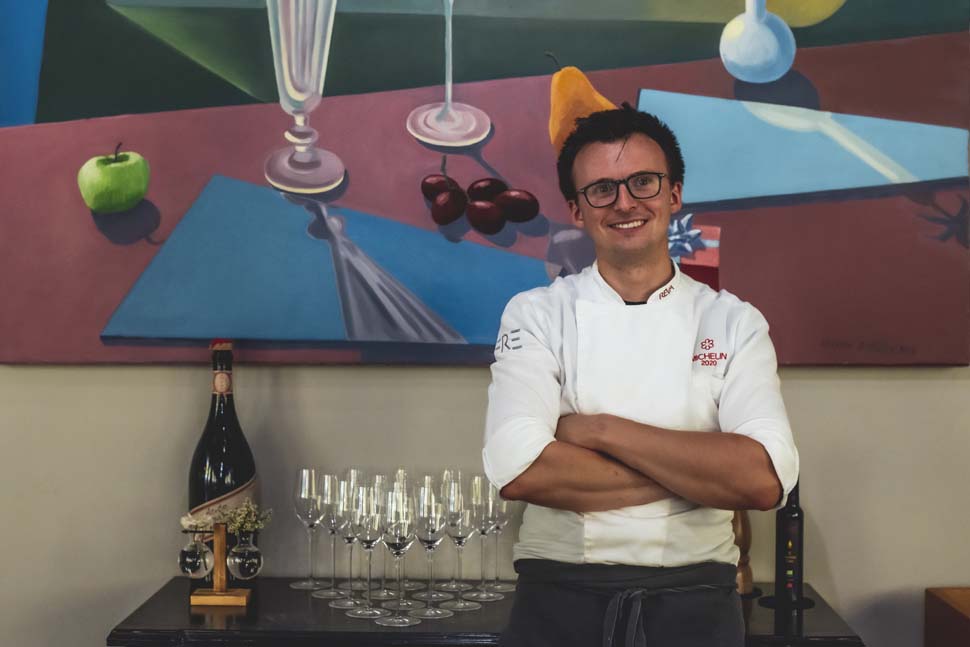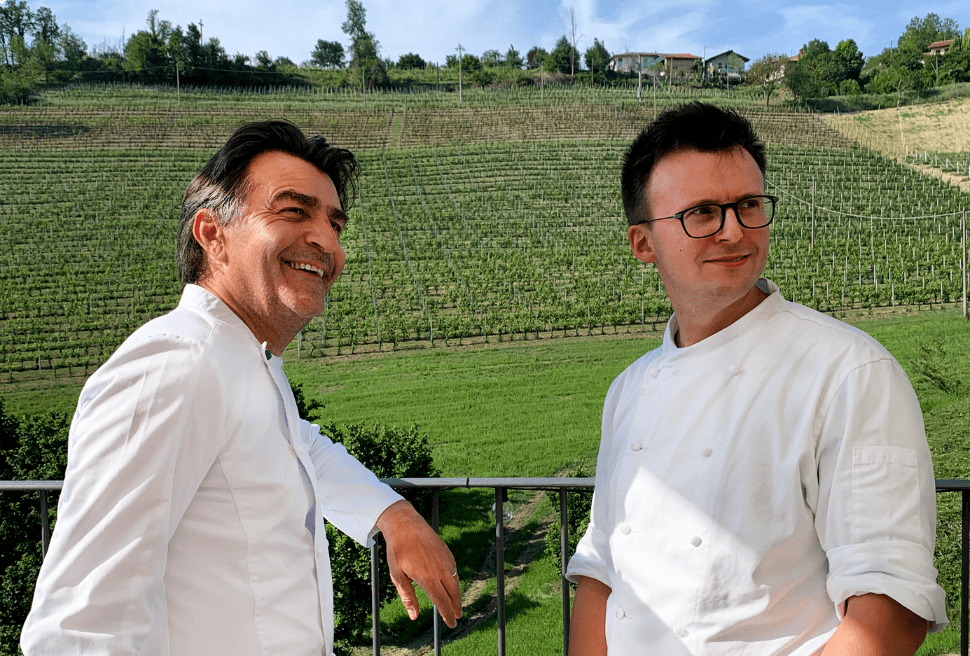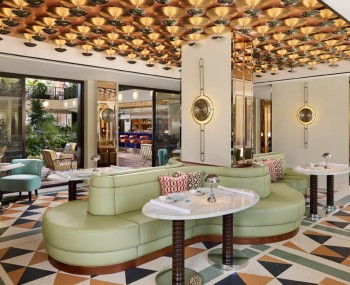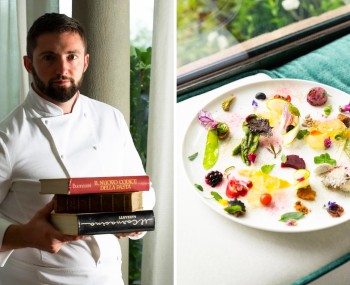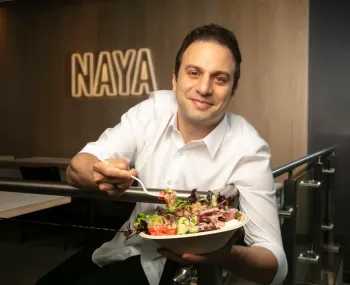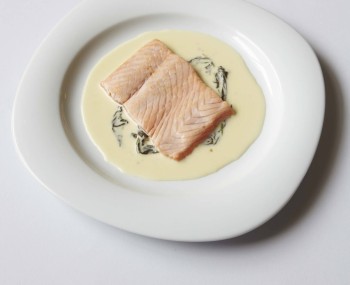With Italian blood and French eyes, Yannick Alléno's knight in the Langhe is preparing to launch a new menu increasingly anchored in the territory. Interview with Francesco Marchese, the young MICHELIN-Starred chef of FRE.
Interview
Francesco is originally from Veneto and found his second home in the Langhe area in Piedmont. Born in 1990, his smile is engaging and decisive; determination has always been his signature characteristic, ever since he left his homeland to go where haute cusine was born, traveling between Lyon, Haute Savoie and Paris, where as a very young man he joined the brigade of the three Michelin starred Yannick Alléno at the Pavillon Ledoyen, who not only welcomed him but also gave him full trust when he decided to return to his homeland, handing him the keys to the first restaurant in Italy of the Alléno group: FRE, inside the Rèva Resort in Monforte d'Alba (CN).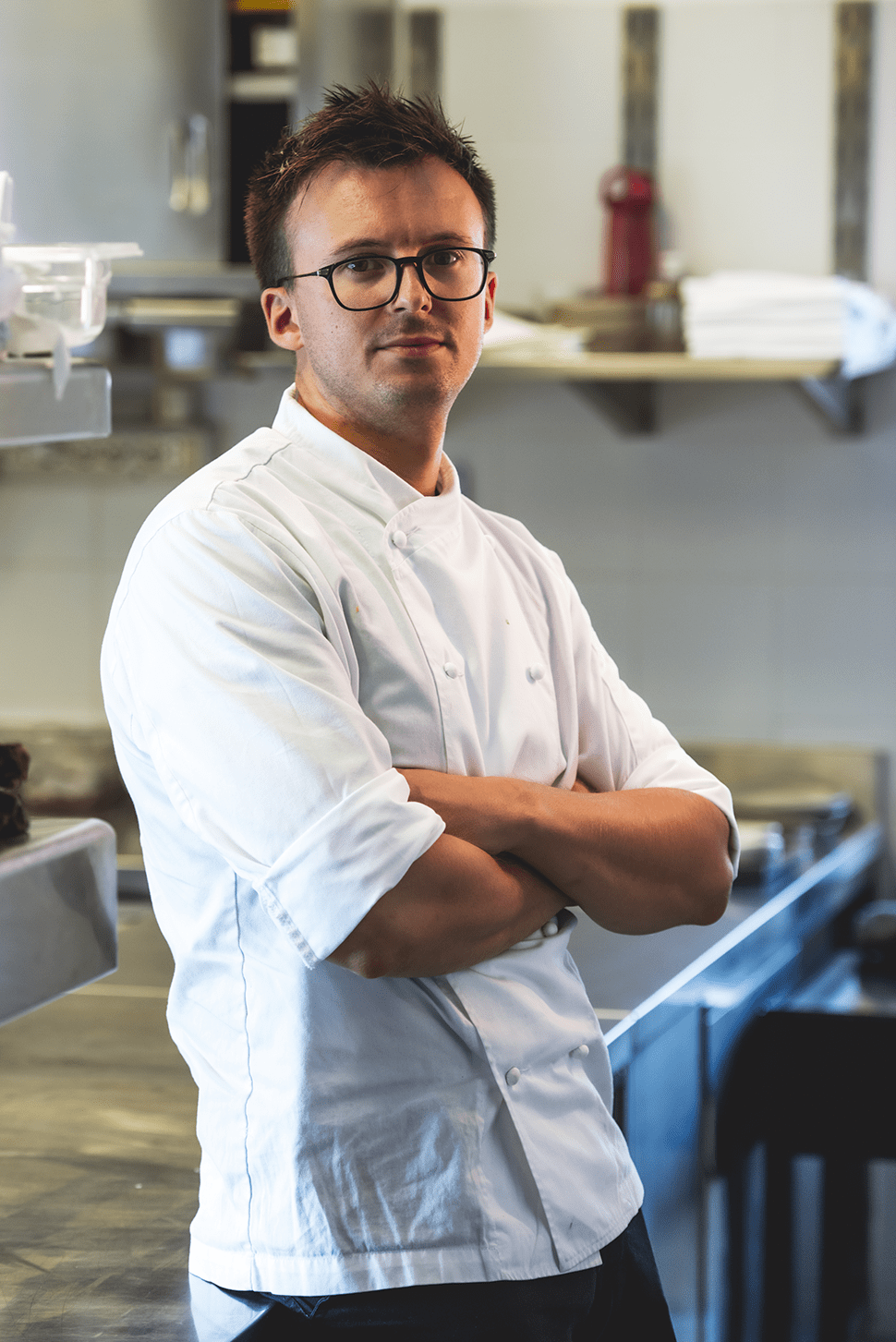
Italian blood and French gaze, this is the formula that led Francesco to his first Michelin star in 2020, without losing ambition, which is the basis for building good cuisine, and a brigade loyal to the project. What will the future hold for him?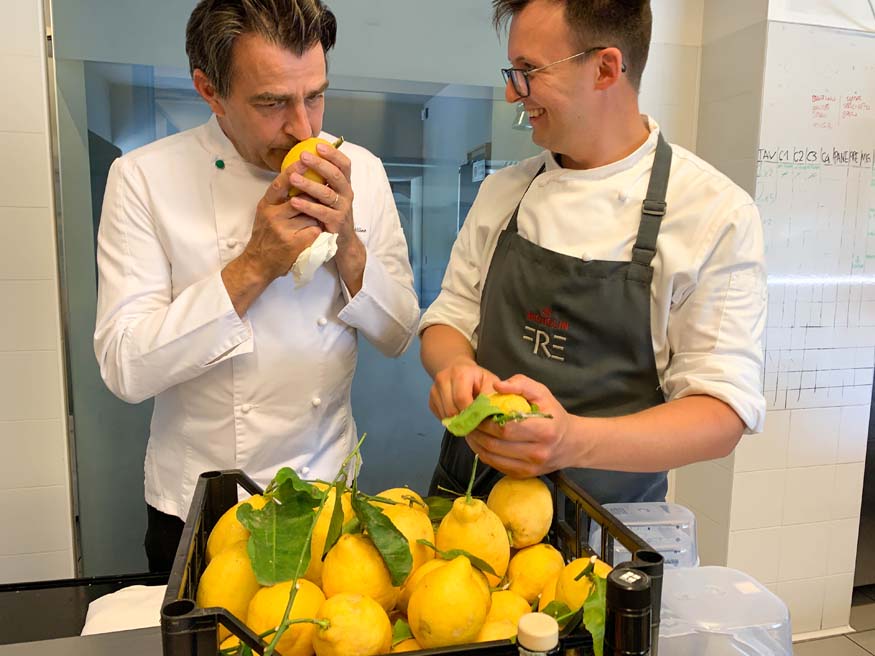
With the winter break finished, what will the reopening look like?
We will reopen quietly, as we are in the process of restyling the space. We won’t immediately adopt the new menu but will continue with the one that closed the previous season. From April we will enhance the tasting menus and add a more extensive ten course. We want to tell a more comprehensive story about the work we do in the kitchen, that of our local producers, and give more space to traditions, local territory, Piedmontese raw materials, and French techniques.
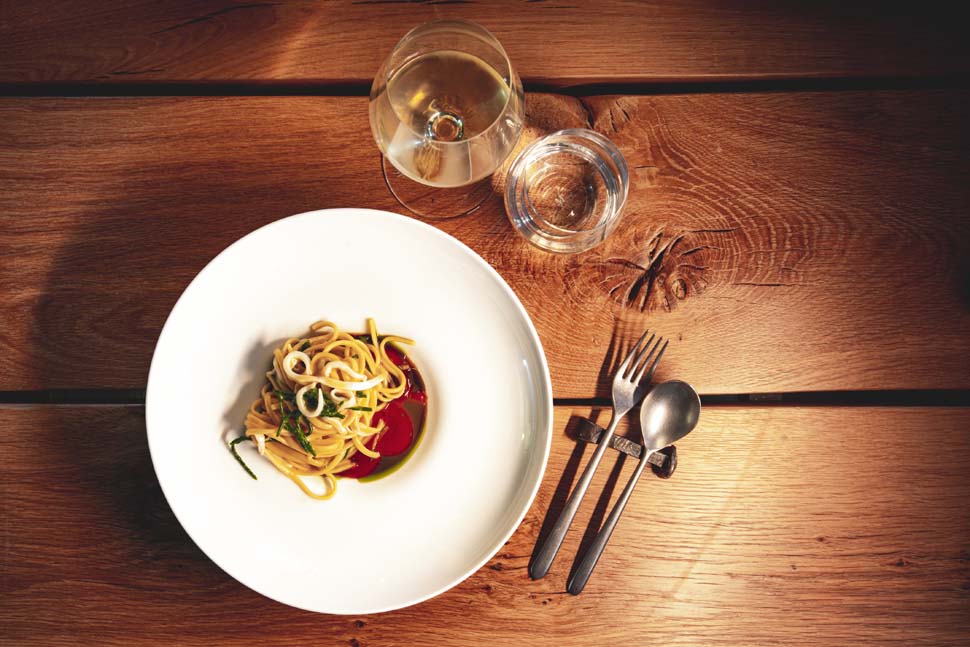
What is this change dictated by?
We wanted to take a step further than the work of the last three years, so new spaces in terms of interiors and new dishes in terms of cuisine.
Do you have any specific goals in sight?
One must always look ahead; we have never tried to hide that we are aiming for even higher accolades. The second Michelin star is certainly among them.
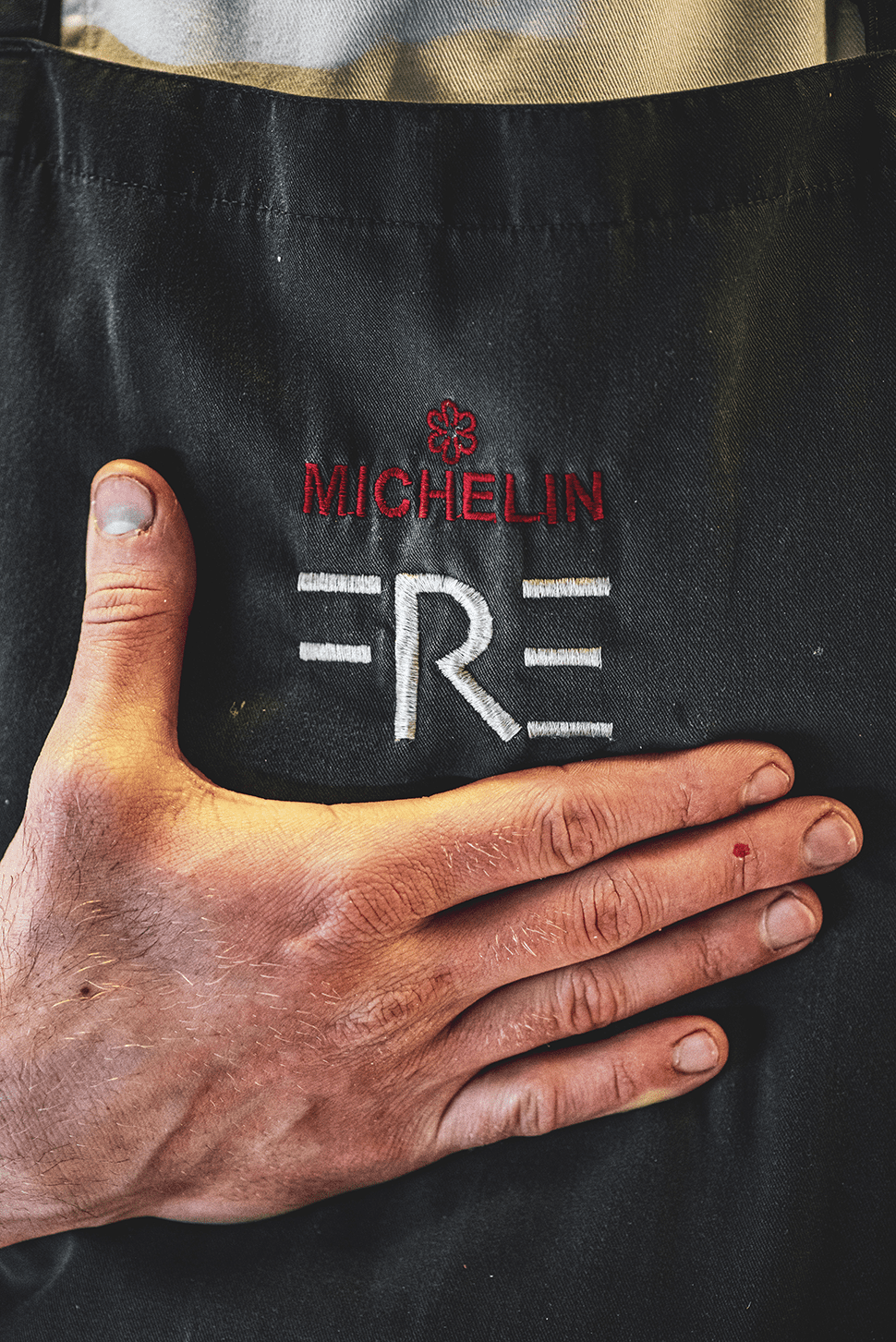
There has always been a strong French atmosphere at FRE. Is this due to Yannick Alléno or your own inclination?
This year we´re going to work even more closely with Yannick. I´ve already been to Paris several times, and there are still plenty of visits planned with the aim of working as closely as possible with the chef to escalate the changes. Every time I go to Pavillon Ledoyen, I find a kitchen that is constantly evolving, accustomed to work at a different pace than ours: it is an incredibly stimulating environment that allows me to go home with a wealth of information and input that needs to be assimilated and reworked, and from which the FRE dishes then take shape.
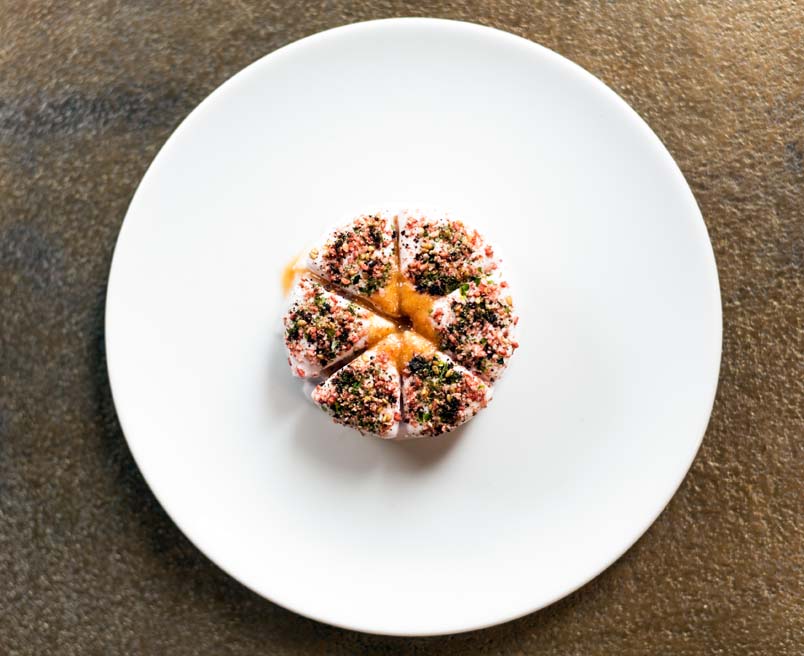
You are still hungry for growth, right?
We have never lacked that. After years of work, you reach a point where you have to challenge yourself even more, you have to be aware that you never stop learning, but at the same time you must not forget that the only real goal is to have happy customers in the room.
France: Is it a love- hate relationship for you?
In our profession, France is a pivotal point. The Langhe area is full of chefs who have passed through the kitchens of the greatest masters from beyond the Alps; it's useless to deny that they are more advanced from a gastronomic point of view, we must be honest, look at them with admiration and learn from their teachings.
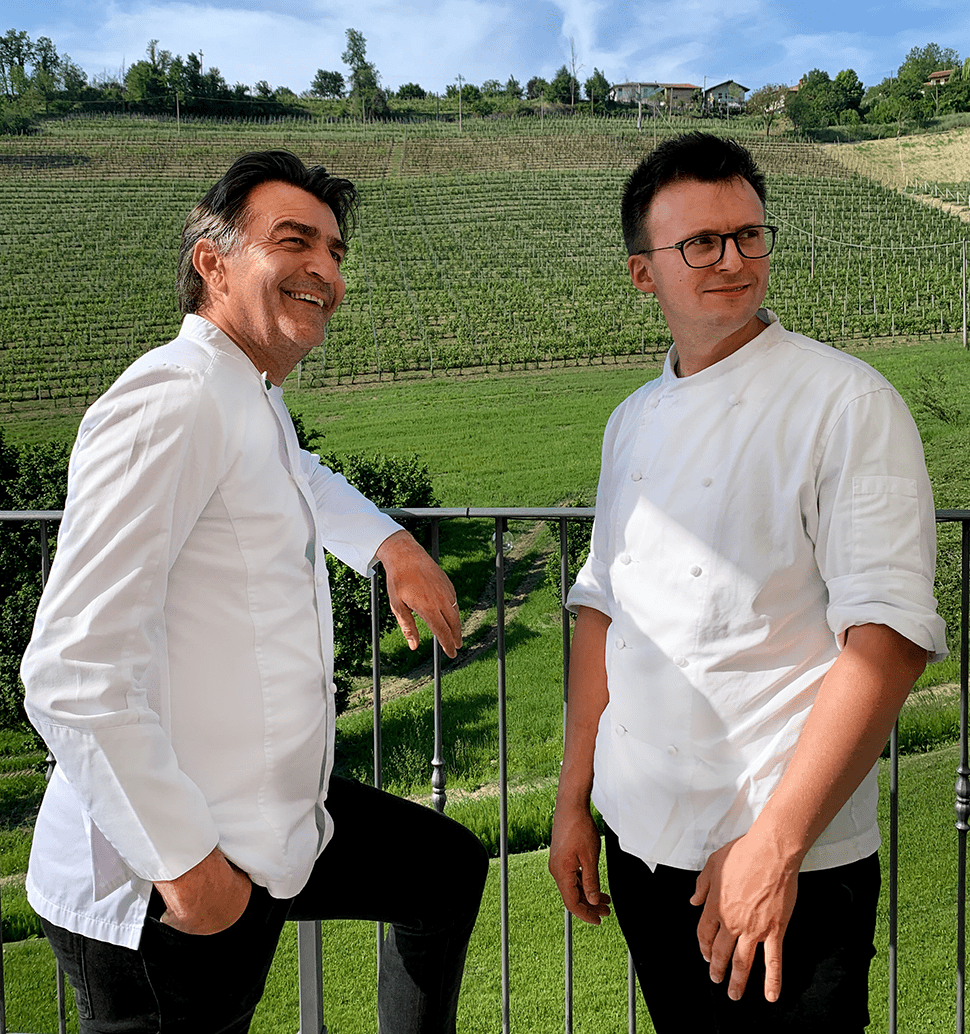
In what way is France more advanced?
Just to give a few examples: the quality standard for products is higher, not in the sense that the raw material is better, mind you, but in the sense that a lot of work is already done upstream directed toward the fine dining approach; in the kitchen there is a more effective hierarchical structure; the method of work is more efficient and all these aspects are not easily replicated in Italy.
What are your thoughts on the January 16th report on Sustainability of Michelin Starred kitchens?
Fine dining restaurants belong to their own niche, yet it still makes sense to talk about their sustainability. Having established that in the restaurant industry there is a hierarchy dictated also by the gastronomic guides, it is a moral duty for those in the positions with the most visibility to make this commitment and set a good example. For years, waste and exuberance have been practiced as a mantra, nowadays the trend is diametrically opposed, starting with many customers who are showing real sensitivity to the topic of sustainability. The risk at stake, by cultivating a world without respect for raw materials, human capital, and working hours, is to have a future without fine dining. Being sustainable it's now part of a chef´s set of skills.
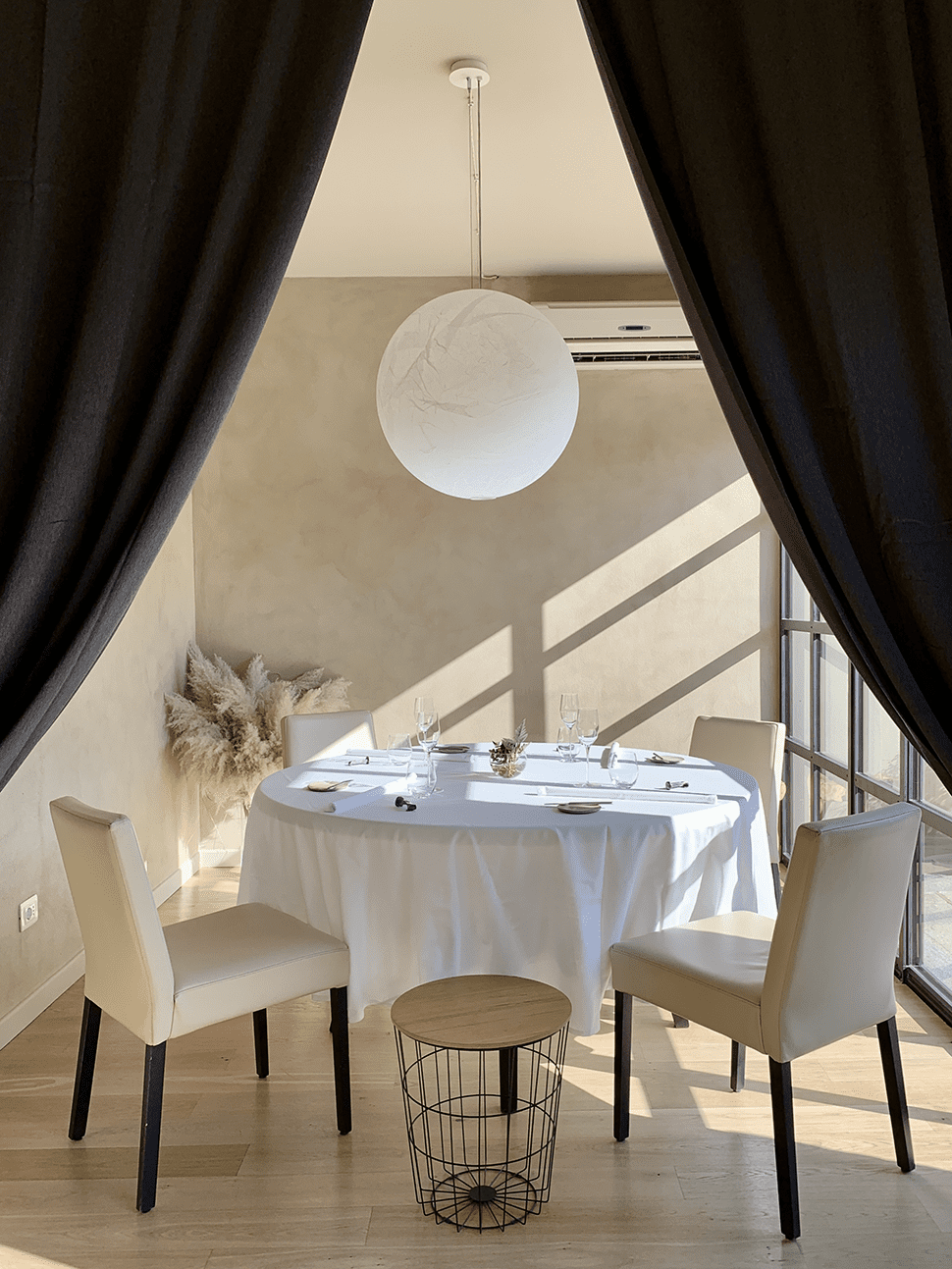
It was once custom to not pay interns.
We give a fair wage based on ability, willingness to work and to grow. There´s also a point to be made that the cost of living has changed from a few years ago; therefore, in my opinion, a treatment like the one given to interns until a few years ago is unrealistic as well as unacceptable nowadays.
What is the percentage between technique and technology in your kitchen?
We have no special technologies. We make use of classic techniques, which are always at the service of taste; we do not seek exuberance, but harmony of tastes and textures.
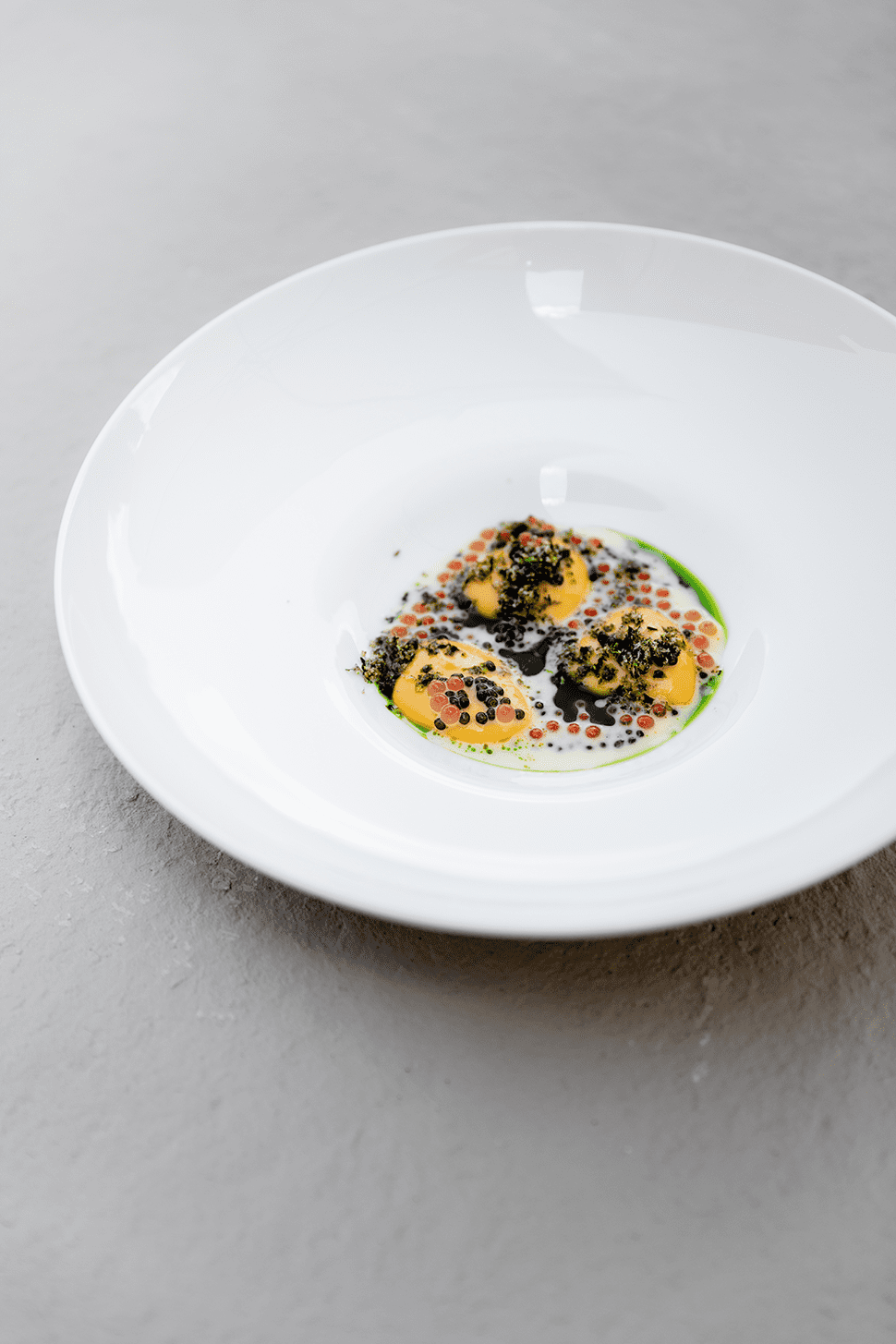
What is your relationship with the dining room?
If we´re talking about going out to the dining room after or during the service, I think it´s necessary to put a face into what we do; moreover, going out to the dining room often coincides with the finishing of the dish, with the crafting of final details or a sauce, which adds a quid to the service itself. I admit I am not comfortable getting out of the kitchen, but getting feedback and comments is so important. It is an aspect of my character that I am trying to smooth out little by little.
Can low quality raw material be made right with good tecnique?
Absolutely not, without compromise. The starting point of a recipe is always the raw material. If that´s not there, there is no foundation to build a good dish.
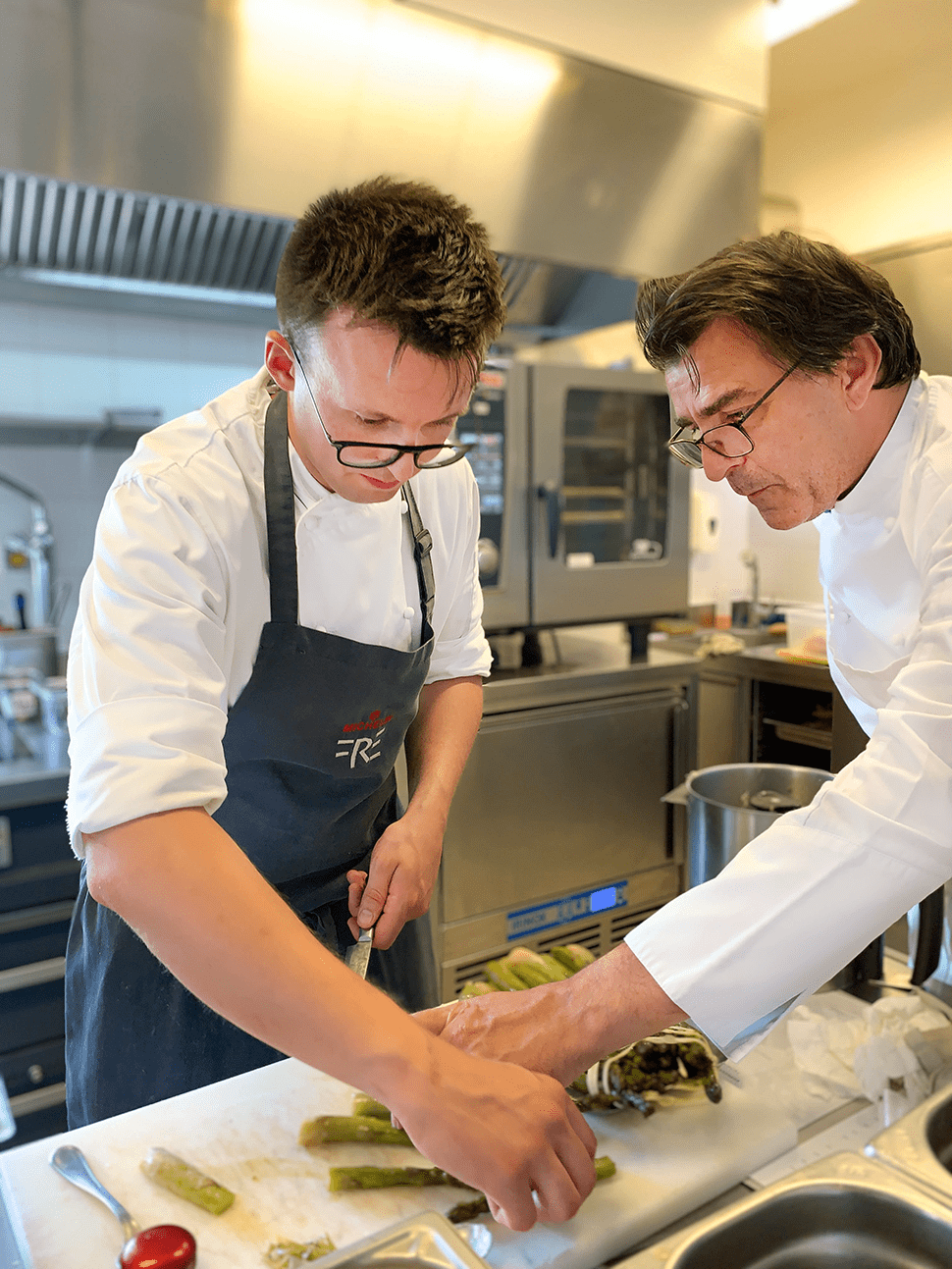
If I use these three words in the same sentence: cooking, research, and revolution. What comes out?
Research for me has taste as its sole purpose; it means experimenting, testing techniques, and playing with combinations. If you speak about revolution, very few people do it. To be revolutionary you must do something that is universally shared. If I had to point out to someone as an example, it would be René Redzepi of Noma in Copenhagen. Each of his new openings is anticipated as the gastronomic event of the year.
Let's talk about contamination.
Contamination means following up and giving body to the influences that each of us has received in our various experiences around the world. I am currently discovering Piedmont, a land that is giving me so much. I'm focusing on that.
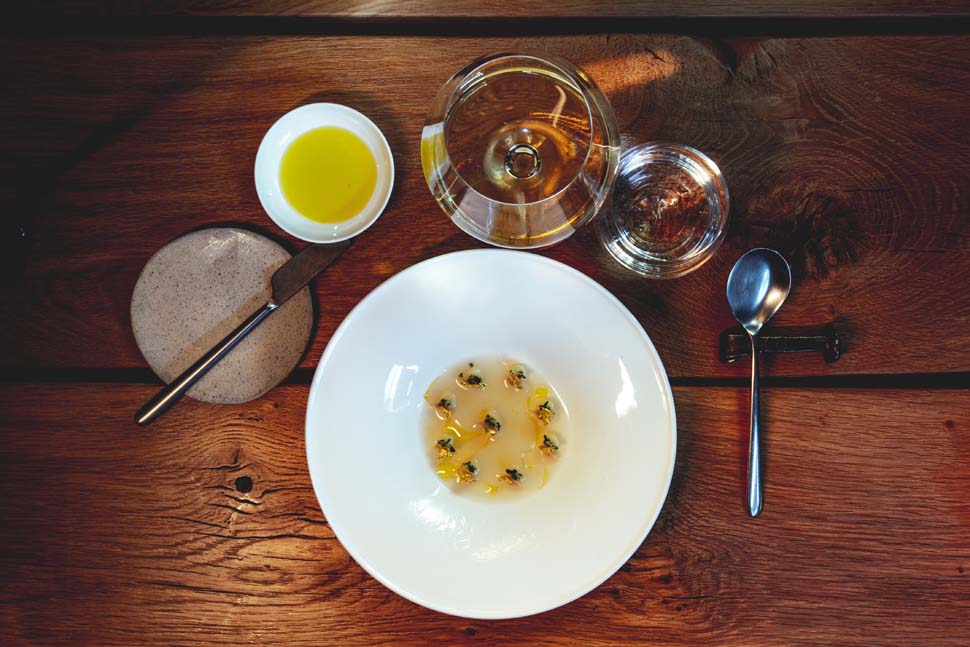
Your most representative dish?
The San Pietro fish dish with vin jaune sauce (typically French), stuffed wild garlic, and morchella mushroom. These are excellent ingredients with a French sauce and well-executed cooking. Nothing more.
Going back to the subject on human capital, do you have difficulty finding staff? How do you foster it?
We have had the same brigade since last year. In this we were very fortunate, but it is also true that for some years we were not able to build a solid team. We have been working hard in this last period to make everyone's lives more sustainable in terms of schedules and rhythms. To enhance people’s work, you then need to stimulate them, empower them, and really make them feel part of something.
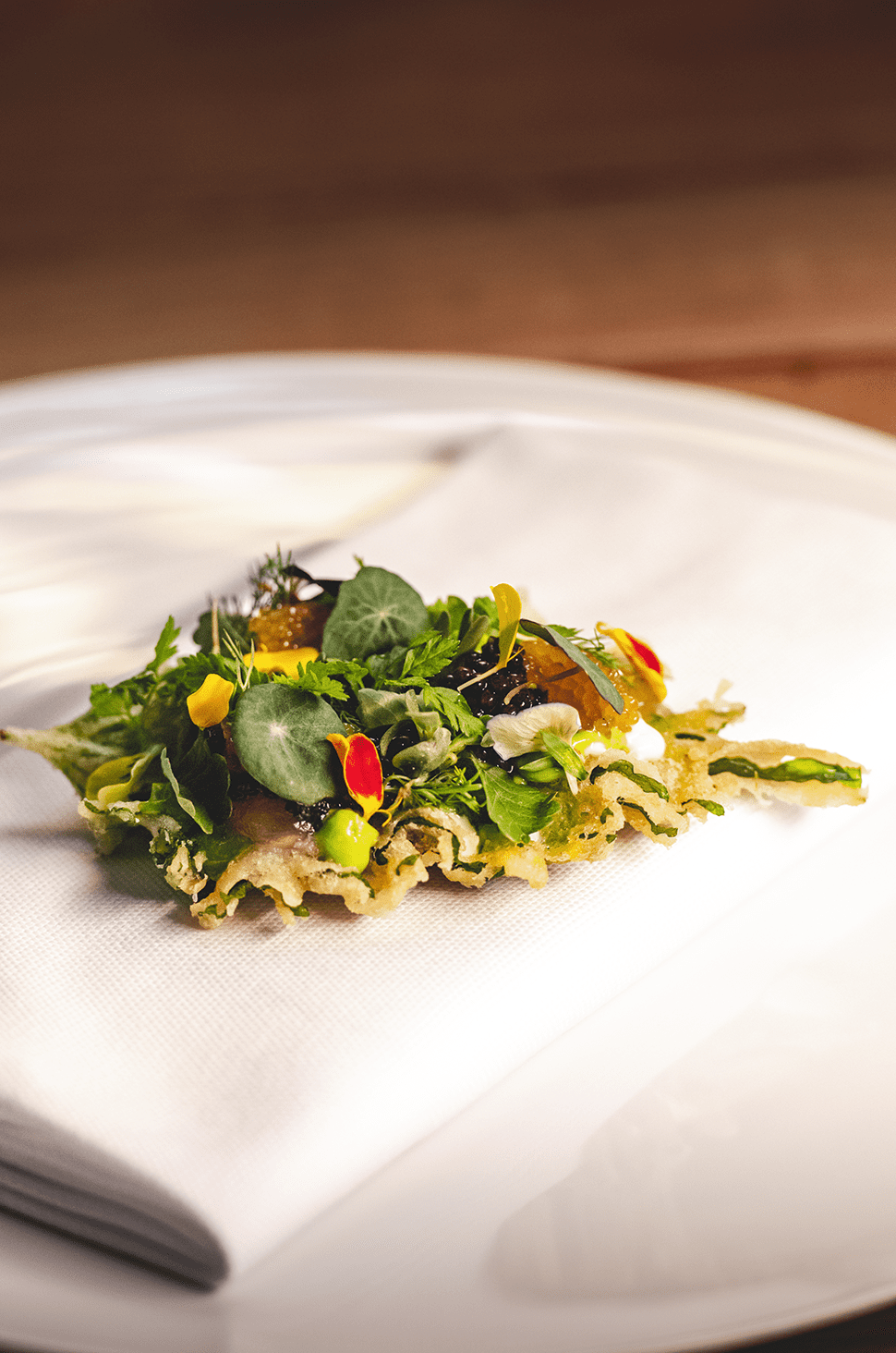
The Langhe is an area where almost every opening is a success. What makes it so special?
I have been in the Langhe since 2020, right after the first lock down. There´s no magic behind so much success, there´s just a lot of tradition that is strongly enhanced, and that helps in building a strong and recognizable identity. There is also a synergy between restaurants and great wineries that acts as a driver for food and wine tourism, all aided by entrepreneurial thinking and great chefs. This ends up being the perfect formula, of course completed by an enchanting landscape.
Chef, what do you want to be when you grow up?
When I grow up, I want to continue doing what I'm doing now as a young man: be a cook, among cooks.
